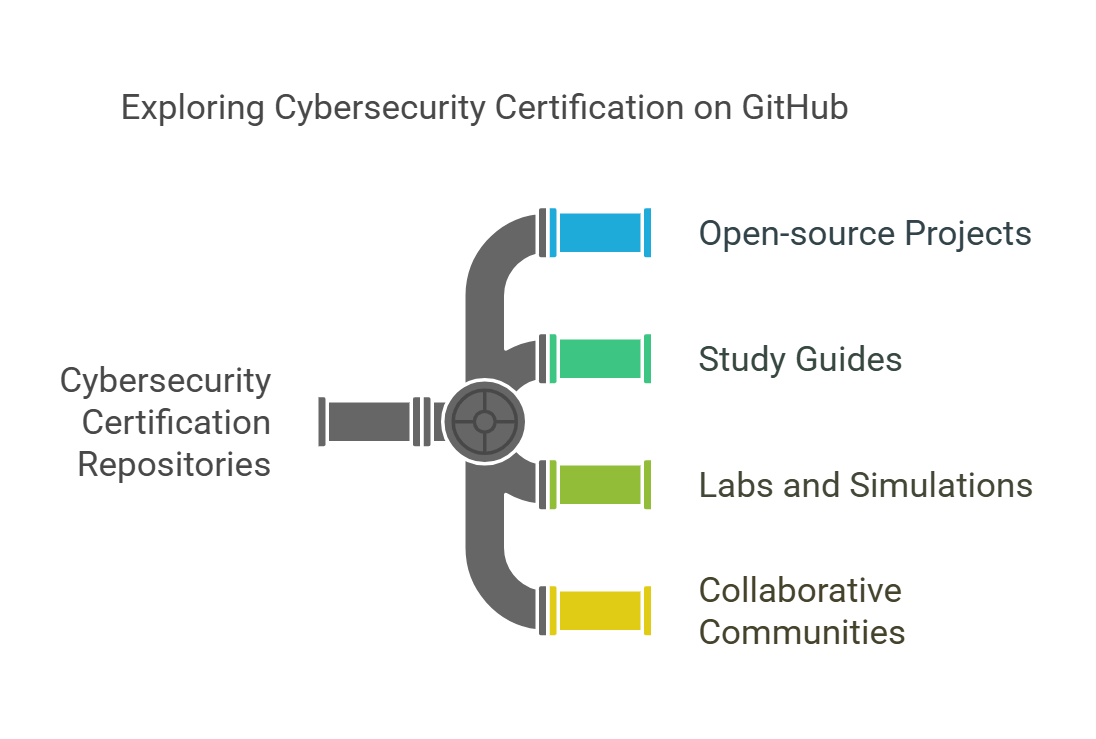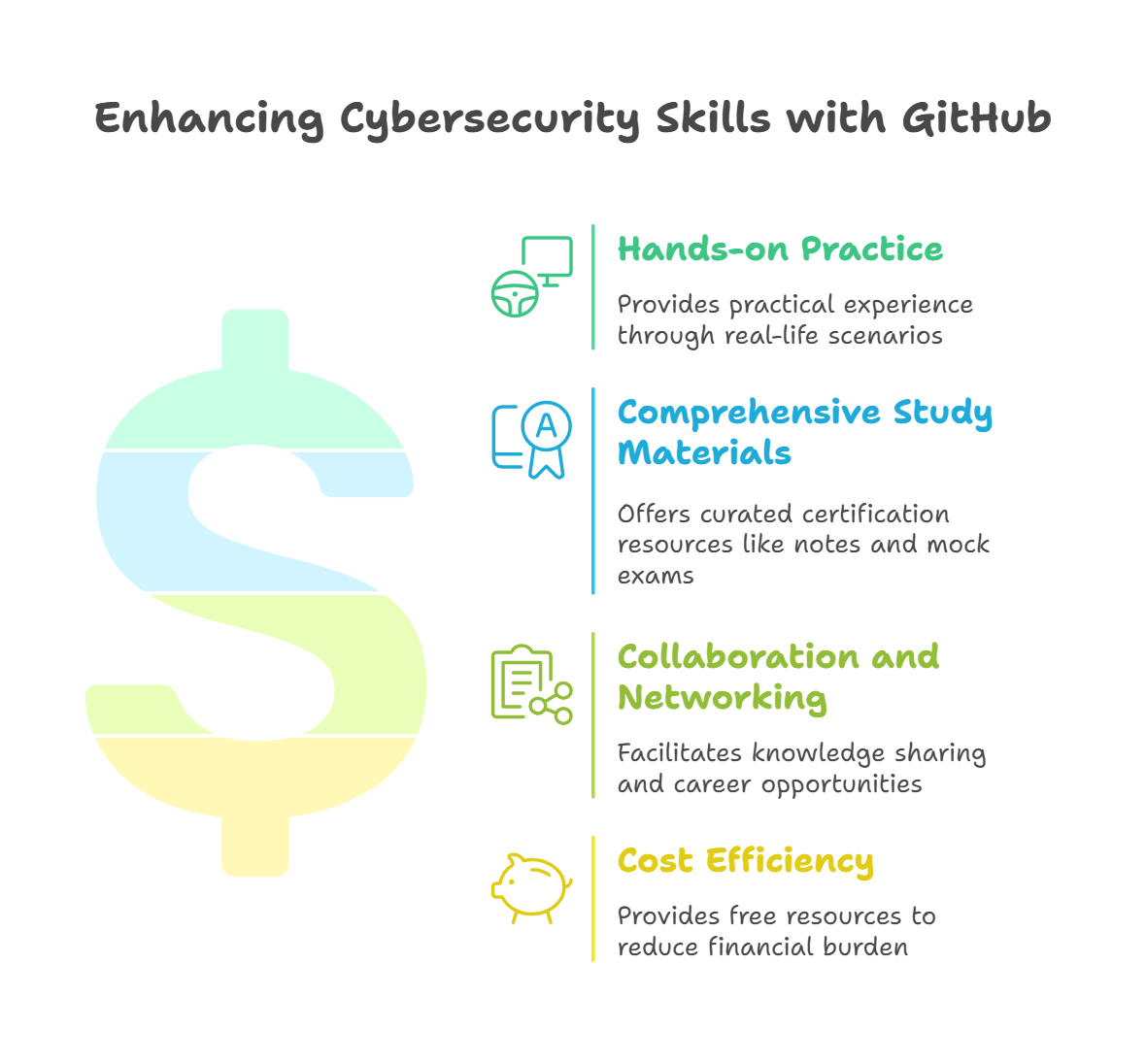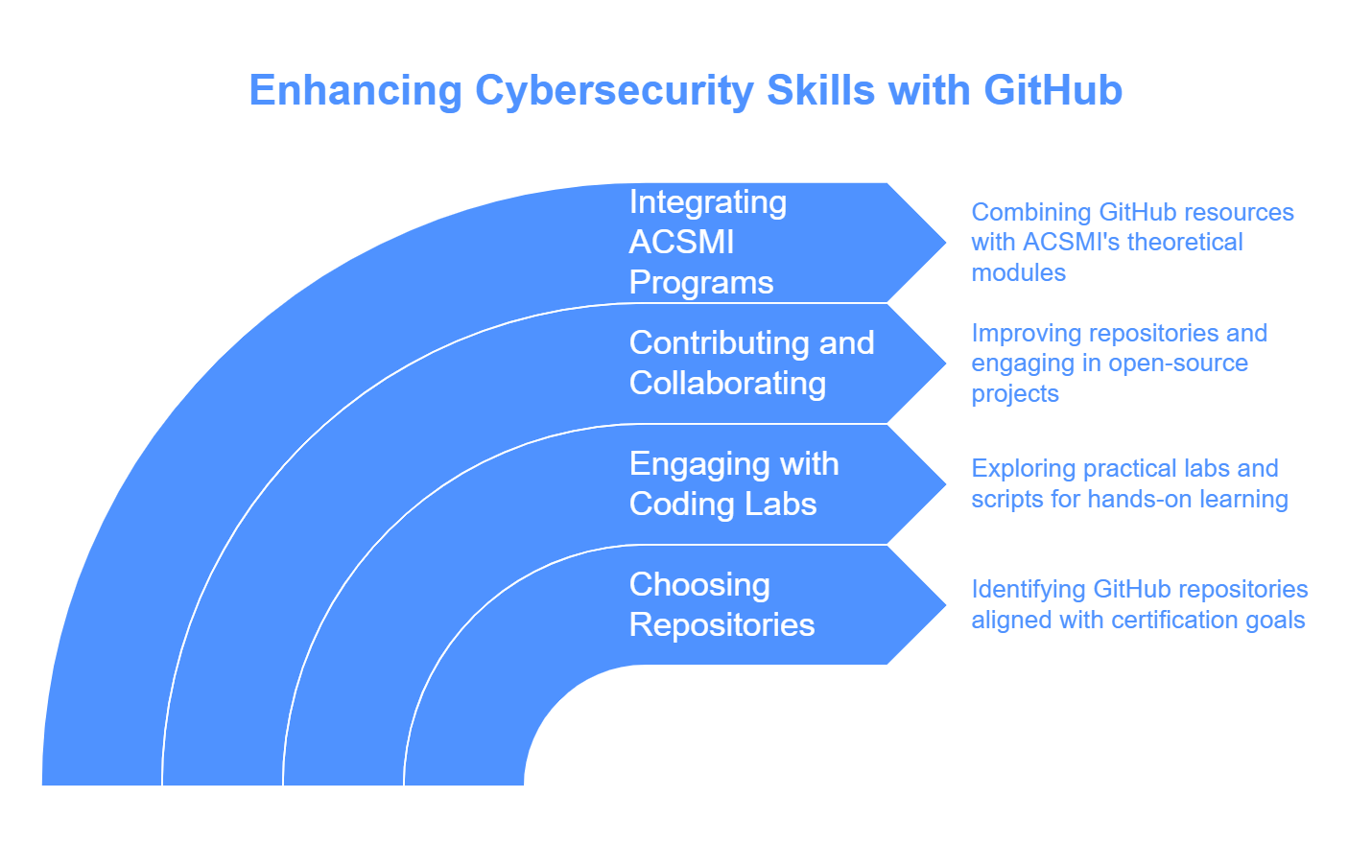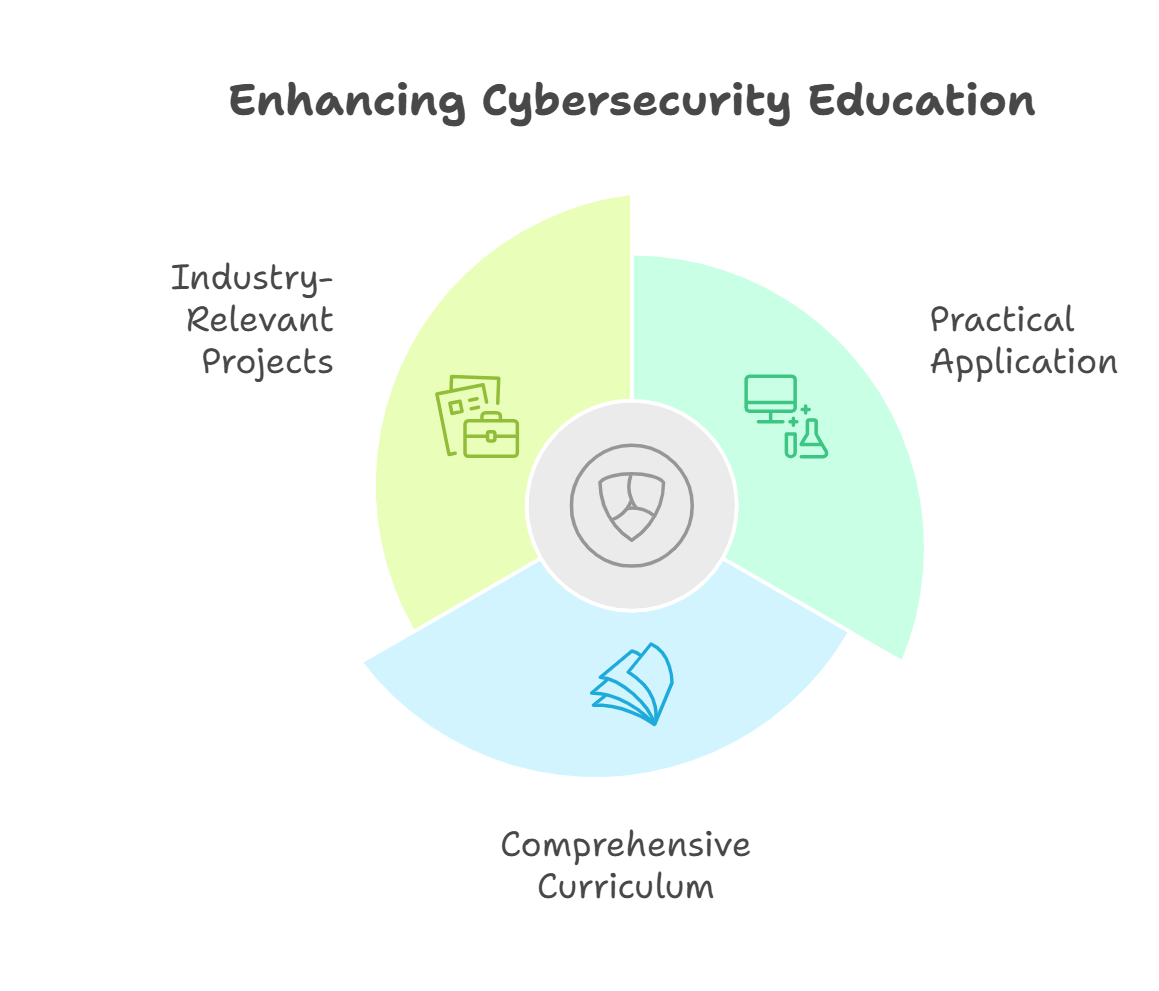Table of Contents
- What Is Cybersecurity Certification GitHub?
- Why Should You Use Cybersecurity Certification GitHub?
- How to Leverage Cybersecurity Certification GitHub
- Understanding GitHub and Certification Connections
- ACSMI Certifications and Their Synergy with GitHub
- Final Thoughts
- FAQs About Cybersecurity Certification GitHub
- How to Leverage Cybersecurity Certification GitHub
Navigating the vast and dynamic world of cybersecurity certifications requires not only determination but access to the right tools and resources. One invaluable resource rising in popularity is Free Cybersecurity Certification – 101 Guide, a comprehensive starting point for learners aiming to gain foundational knowledge in cybersecurity. Alongside this, Cybersecurity Certification GitHub serves as a treasure trove of open-source learning materials, practical projects, and collaboration opportunities. GitHub has revolutionized the way learners and professionals access cybersecurity content by offering centralized repositories created and updated by experts worldwide.
If you’ve been searching for ways to supplement your cybersecurity certification studies or are looking for practical coding labs and guides to level up your expertise, GitHub has what you’re looking for. When paired with structured programs like ACSMI’s, with its 400+ modules, Free Cybersecurity Certification – 101 Guide and GitHub resources will ensure you maximize your learning and career success.
What Is Cybersecurity Certification GitHub?

GitHub is the world’s leading platform for hosting and managing code repositories, utilized by millions of developers and professionals. But GitHub isn’t just for coders—it’s a game-changer for anyone pursuing certifications in cybersecurity. It serves as a vast repository that facilitates collaborative learning, hands-on practice, and networking for cybersecurity aspirants.
On GitHub, there are repositories dedicated to providing free and open-source resources, designed to help learners prepare for various cybersecurity certifications, from entry-level credentials to highly specialized programs. These repositories range from study guides to full coding labs and real-world projects that simulate cybersecurity attacks and defense strategies.
Key Features of Cybersecurity Certification Repositories on GitHub:
-
Open-source projects designed for hands-on learning: GitHub offers practical exercises and real-world simulations to help you apply cybersecurity concepts.
-
Comprehensive study guides for popular certifications like CISSP, CEH, and Security+: These repositories often include mock exams, notes, and in-depth explanations tailored for various certifications.
-
Labs and simulations that provide real-world threat mitigation scenarios: These are perfect for learners to get real-world experience in ethical hacking, penetration testing, and network security.
-
Collaborative communities sharing best practices, tools, and feedback: GitHub fosters a collaborative environment where learners can interact, ask questions, and share their knowledge.
Why Should You Use Cybersecurity Certification GitHub?
The availability of hands-on practice, comprehensive learning materials, and collaboration tools makes GitHub a powerful supplement to formal cybersecurity programs. Here’s how it can help:

-
Hands-on Practice:
Practical experience is one of the most critical aspects of cybersecurity. GitHub repositories offer access to real-life scenarios, including ethical hacking simulations, configuration files, and vulnerability testing exercises. These resources are perfect for bridging the gap between theory and application. -
Comprehensive Study Materials:
Most top-rated certifications, such as CompTIA Security+, Certified Information Systems Security Professional (CISSP), and ACSMI’s modules, have dedicated repositories on GitHub. These are curated by contributors who provide everything from detailed notes to mock exams. -
Collaboration and Networking:
Cybersecurity is a collaborative field. GitHub lets you actively contribute to or fork existing repositories, enabling knowledge sharing with other learners and professionals. These connections can also lead to mentorship and invaluable career opportunities. -
Free and Accessible Learning:
One of the biggest advantages is cost efficiency. While certifications can have significant financial commitments, GitHub provides free supplemental resources to enhance your learning without breaking the bank.
How to Leverage Cybersecurity Certification GitHub
GitHub offers vast resources for every learner, but to maximize its potential, you must follow a strategic approach. Here’s how to effectively use GitHub to enhance your Cybersecurity Certification pdf and improve your understanding of security practices.

-
Choose Repositories Tailored to Your Goals:
Start by identifying GitHub repositories aligned with the certification you’re pursuing. Search for repositories detailing specific certifications like Security+, CEH, or even niche skills like penetration testing or compliance. -
Engage With Coding Labs:
Coding is intrinsic to cybersecurity. Explore repositories offering practical labs and scripts, such as those simulating brute-force attacks or phishing scenarios. Work on projects actively to solidify theoretical learning. -
Contribute and Collaborate:
You’re not limited to passively consuming GitHub content. Make improvements to repositories, report vulnerabilities in community projects, or even create your own repository with projects you’ve completed. Engaging in open-source collaboration helps sharpen your skills while also benefiting the community. -
Integrate GitHub With ACSMI Programs:
GitHub’s open resources pair beautifully with structured programs like those offered by ACSMI. While GitHub gives you tools for practical experience, the 400+ modules at ACSMI ensure you gain well-rounded theoretical knowledge and certifications recognized globally.
Understanding GitHub and Certification Connections
GitHub has emerged as a powerful ally for individuals pursuing cybersecurity certifications, serving as both a practice ground and a rich resource for deepening their knowledge. Here’s how GitHub connects with major cybersecurity certifications and enhances your learning.
-
For CompTIA Security+, GitHub hosts study guides, labs on basic network security concepts, and beginner-friendly repositories that cover risk management, security protocols, and foundational cybersecurity principles. These resources provide hands-on exercises to reinforce the theoretical knowledge taught in formal courses.
-
For certifications like the Certified Ethical Hacker (CEH), GitHub becomes a playground for practical hacking exercises. You’ll find repositories featuring penetration testing tools, vulnerability assessment scripts, and simulated scenarios, such as phishing experiments or brute-force attack labs. This hands-on engagement is essential for mastering ethical hacking techniques.
-
For those pursuing advanced credentials like the Certified Information Systems Security Professional (CISSP), GitHub offers in-depth resources on compliance, security operations, and frameworks such as NIST or ISO standards. Contributions from experienced professionals provide real-world applications of high-level security practices, ensuring you're prepared for leadership roles in cybersecurity.
-
For multifaceted programs like ACSMI’s certifications, which involve over 400 modules spanning all levels of expertise, GitHub’s diverse repositories enrich the experience. Learners can complement ACSMI’s structured curriculum by tackling GitHub projects that align with module topics—whether it’s configuring firewalls, performing threat analyses, or exploring cutting-edge technologies like IoT security or cloud architecture.
ACSMI Certifications and Their Synergy with GitHub
The ACSMI Cybersecurity Certification is designed to provide a holistic education in cybersecurity. With 400+ specialized modules, ACSMI offers both foundational and advanced knowledge, equipping learners with the skills needed to handle cybersecurity challenges across various sectors. By integrating ACSMI’s certification program with GitHub’s practical resources, learners gain a full-spectrum understanding of cybersecurity.

Here’s how ACSMI enhances the learning experience:
-
Practical Application: ACSMI provides hands-on labs, case studies, and simulations that are essential for mastering cybersecurity techniques. These can be further supplemented with GitHub repositories for deeper engagement with real-world scenarios.
-
Comprehensive Curriculum: ACSMI’s modular approach covers everything from network security to cloud infrastructure and advanced threat management. GitHub offers relevant coding resources and simulations to augment this knowledge.
-
Industry-Relevant Projects: With practical projects provided by GitHub, you can directly apply ACSMI’s teachings to real-world cybersecurity challenges. This pairing not only helps in exams but in building practical experience to solve modern cybersecurity issues.
Final Thoughts
Cybersecurity Certification GitHub is transforming how learners prepare for certifications, serving as an indispensably rich resource for study guides, practical labs, and collaborative projects. Whether you’re looking to solidify your foundation or gain hands-on experience in specialized areas, GitHub repositories offer endless possibilities to maximize your learning potential.
When paired with robust programs like ACSMI’s, which boast 400+ modules and globally recognized credentials, you ensure not only certification success but practical expertise valued by employers.
Start mapping out your path today. Explore ACSMI’s certifications and complement them with the open-source advantages of GitHub. Together, they’ll help you build a career that thrives in an increasingly competitive and digital world.
FAQs About Cybersecurity Certification GitHub
What is Cybersecurity Certification GitHub?
It refers to repositories on GitHub that provide study materials, tools, and projects for those pursuing certifications in cybersecurity.
Can I rely solely on GitHub to pass certifications?
No. While GitHub is an excellent resource for hands-on practice and supplementary materials, structured courses or programs like ACSMI’s are necessary for thorough preparation.
Are all resources on GitHub free?
Most repositories are open-source and free, but some contributors or creators may charge for premium access to additional study guides or labs.
How do I find the right repository for my certification?
Search directly on GitHub using keywords like your certification name (e.g., “CEH GitHub repository”). Look for repos with stars, forks, and active contributions to ensure you’re accessing high-quality content.
Can I use GitHub to prepare for ACSMI’s certifications?
Absolutely. Many GitHub projects complement ACSMI’s certifications by offering coding exercises, simulated scenarios, and practice opportunities that align with industry demands.

Leave a Reply